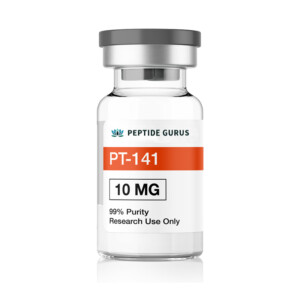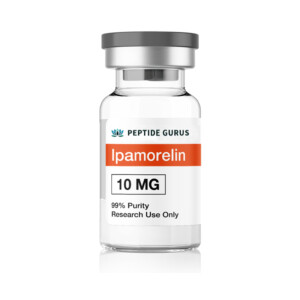In the ever-evolving world of biotechnology, the quality and certification of peptides play a crucial role in their application and efficacy. ISO 9001:2008 certified peptides vs. non-certified peptides is a topic that has garnered significant attention among researchers, manufacturers, and consumers alike. Understanding the difference between these two categories can help stakeholders make informed decisions regarding their use in various fields, including pharmaceuticals, cosmetics, and research.
ISO 9001:2008 certification is an internationally recognized standard that ensures a company’s quality management system meets specific requirements. This certification is not specific to peptides but applies to any organization seeking to demonstrate its ability to consistently provide products and services that meet customer and regulatory requirements. Peptides that are ISO 9001:2008 certified have undergone rigorous quality control processes, ensuring their purity, consistency, and safety.
On the other hand, non-certified peptides may not adhere to the same stringent quality standards. These peptides might be produced in facilities that lack proper quality management systems, leading to potential inconsistencies in their composition and efficacy. While non-certified peptides can be more affordable, they pose a higher risk of contamination or impurity, which can significantly impact their performance in scientific and medical applications.

The importance of ISO 9001:2008 certification in the peptide industry cannot be overstated. Certified peptides provide assurance to researchers and manufacturers that the products they are using meet high-quality standards. This is particularly important in pharmaceutical applications, where the purity and consistency of peptides can directly influence the outcome of clinical trials and the safety of medications.
Pharmaceutical companies often prioritize ISO 9001:2008 certified peptides due to the stringent regulations governing drug development and production. The reliability of certified peptides ensures that active ingredients in medications are consistent, reducing the risk of adverse effects and increasing the likelihood of successful treatment outcomes. This level of assurance is crucial in maintaining the integrity of the pharmaceutical industry.
In the cosmetics industry, the use of peptides has grown significantly due to their anti-aging and skin-rejuvenating properties. ISO 9001:2008 certified peptides are preferred by many cosmetic manufacturers as they guarantee the safety and efficacy of their products. Consumers are increasingly aware of the importance of product quality and are more likely to trust brands that use certified peptides in their formulations.
Research laboratories also benefit from using ISO 9001:2008 certified peptides, as these products provide a reliable foundation for scientific experiments. The consistency and purity of certified peptides ensure that research findings are accurate and reproducible, which is essential for advancing scientific knowledge and developing new technologies.
Despite the clear advantages of ISO 9001:2008 certified peptides, some researchers and manufacturers may still opt for non-certified options due to cost constraints. Non-certified peptides are generally cheaper, making them an attractive choice for projects with limited budgets. However, the potential risks associated with their use must be carefully considered, especially in applications where precision and reliability are critical.
The decision to use ISO 9001:2008 certified peptides vs. non-certified peptides ultimately depends on the specific requirements of the application and the level of risk that stakeholders are willing to accept. In high-stakes fields like pharmaceuticals and biotechnology, the benefits of certification often outweigh the costs, providing peace of mind and ensuring compliance with regulatory standards.

For consumers and end-users, understanding the significance of ISO 9001:2008 certification can guide purchasing decisions and foster trust in the products they choose to use. Brands that prioritize quality and certification are more likely to gain a loyal customer base, as they demonstrate a commitment to safety and excellence.
The process of obtaining ISO 9001:2008 certification involves a thorough assessment of a company’s quality management system. This includes evaluating production processes, documentation practices, and overall organizational structure to ensure compliance with international standards. Companies that achieve certification must continuously monitor and improve their systems to maintain their status.
In contrast, non-certified peptide producers may not be subject to regular audits or quality assessments, potentially leading to lapses in production standards. This lack of oversight can result in variability in product quality, which can have serious implications for their use in sensitive applications.
The growing demand for high-quality peptides in various industries underscores the importance of certification as a mark of excellence. ISO 9001:2008 certified peptides are increasingly seen as the gold standard, providing assurance of quality and reliability that non-certified counterparts may lack.
While cost is an important consideration for many organizations, the long-term benefits of using certified peptides often justify the initial investment. By ensuring product quality and consistency, companies can avoid costly recalls, legal issues, and damage to their reputation, ultimately saving money in the long run.
The role of ISO 9001:2008 certification in the global marketplace is significant, as it facilitates international trade by ensuring that products meet universally accepted quality standards. This is particularly important for peptide manufacturers looking to expand their reach and compete in a competitive global market.
In conclusion, the debate between ISO 9001:2008 certified peptides vs. non-certified peptides highlights the critical importance of quality assurance in the peptide industry. While non-certified peptides may offer cost savings, the potential risks associated with their use cannot be ignored. Certified peptides provide a level of assurance that is invaluable in applications where quality and safety are paramount.
As the peptide industry continues to grow and evolve, the demand for certified products is likely to increase. Companies that invest in certification not only enhance their reputation but also contribute to the advancement of science and technology by providing reliable and high-quality products.
Ultimately, the choice between ISO 9001:2008 certified peptides vs. non-certified peptides depends on the specific needs of the application and the priorities of the stakeholders involved. By understanding the benefits and limitations of each option, decision-makers can make informed choices that align with their goals and values.
The future of the peptide industry will likely see a continued emphasis on quality assurance and certification, as these factors become increasingly important in meeting the demands of consumers and regulatory bodies. As such, ISO 9001:2008 certified peptides will remain a crucial component of the industry’s growth and success.
By prioritizing quality and certification, peptide manufacturers can set themselves apart in a crowded market, gaining the trust of consumers and establishing themselves as leaders in the field. This commitment to excellence will drive innovation and ensure the continued advancement of peptide-based technologies.
PeptideGurus is a leading supplier of American-made research peptides, offering top-quality products at competitive prices. With a focus on excellence and customer service, they ensure a secure and convenient ordering process with global shipping.
CONTACT